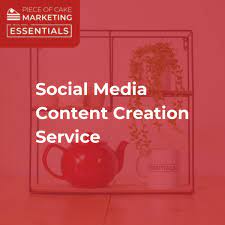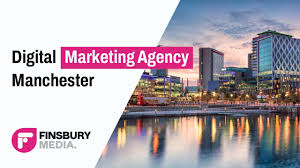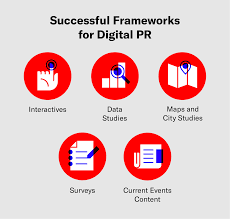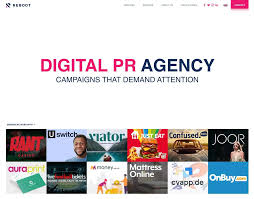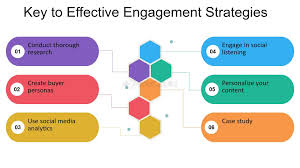Maximising Engagement Through Social Media Posts
Social Media Posts to Increase Engagement
Social media has become a powerful tool for businesses to connect with their audience and increase engagement. To stand out in the crowded digital landscape, it’s essential to create compelling and engaging social media posts that resonate with your followers. Here are some tips to help you boost engagement through your social media content:
Visual Content is Key
Images and videos tend to perform better on social media platforms compared to text-only posts. Use high-quality visuals that are eye-catching and relevant to your brand. Visual content is more likely to grab the attention of users as they scroll through their feeds.
Encourage Interaction
Pose questions, run polls, or ask for opinions in your social media posts to encourage interaction from your followers. People love sharing their thoughts and engaging with brands that value their input. Make sure to respond promptly to comments and messages to foster a sense of community.
Share User-Generated Content
User-generated content is a powerful way to increase engagement and build trust with your audience. Encourage your followers to create and share content related to your brand, products, or services. Reposting user-generated content shows that you value your customers’ contributions.
Use Hashtags Wisely
Hashtags are essential for increasing the visibility of your social media posts. Research trending hashtags relevant to your industry or campaign and incorporate them strategically into your posts. Using hashtags can help you reach a wider audience beyond your followers.
Tell Stories
People connect with stories on an emotional level. Use storytelling techniques in your social media posts to captivate your audience and make them feel more connected to your brand. Share behind-the-scenes glimpses, customer testimonials, or success stories that resonate with your followers.
Post Consistently
Consistency is key when it comes to maintaining engagement on social media. Create a content calendar and schedule regular posts across different platforms at optimal times when your audience is most active online. Consistent posting helps keep your brand top of mind for followers.
By implementing these strategies in your social media posts, you can increase engagement, foster meaningful connections with your audience, and ultimately drive business growth through digital channels.
8 Essential Tips for Boosting Engagement with Your Social Media Posts
- Post consistently to keep your audience engaged.
- Use high-quality images and videos to grab attention.
- Include relevant hashtags to reach a wider audience.
- Interact with your followers by responding to comments and messages.
- Run contests or giveaways to encourage engagement.
- Share user-generated content to build community involvement.
- Post at optimal times when your audience is most active.
- Experiment with different types of content (such as polls, stories, live videos) to keep it interesting.
Post consistently to keep your audience engaged.
Posting consistently on social media is crucial to maintaining engagement with your audience. By establishing a regular posting schedule and sharing content at optimal times when your followers are most active, you can keep your brand visible and top of mind. Consistency not only helps to build trust and credibility with your audience but also ensures that you stay connected with them on a regular basis. Engaging regularly with your followers through timely and relevant posts can strengthen relationships, increase brand loyalty, and ultimately drive better results for your social media strategy.
Use high-quality images and videos to grab attention.
Using high-quality images and videos is a crucial strategy to enhance engagement on social media platforms. Visually appealing content has the power to captivate users’ attention as they scroll through their feeds, making them more likely to stop and engage with your posts. By incorporating visually striking elements into your social media content, you can effectively convey your message, showcase your brand identity, and leave a lasting impression on your audience. High-quality visuals not only attract attention but also help in building credibility and trust with your followers, ultimately leading to increased engagement and interaction with your brand.
Include relevant hashtags to reach a wider audience.
One effective tip to enhance engagement on social media is to include relevant hashtags in your posts. Hashtags play a crucial role in expanding the reach of your content and attracting a broader audience. By using trending or industry-specific hashtags strategically, you can increase the visibility of your posts and connect with users who are interested in similar topics. Incorporating relevant hashtags not only helps in reaching a wider audience but also boosts the discoverability of your content, ultimately driving more engagement and interaction on your social media platforms.
Interact with your followers by responding to comments and messages.
Engaging with your followers by promptly responding to comments and messages is a crucial strategy to increase engagement on social media. By acknowledging and interacting with your audience, you not only show that you value their input but also foster a sense of community around your brand. Responding to comments and messages in a timely manner helps build trust and loyalty among your followers, encouraging them to continue engaging with your content. This two-way communication not only boosts engagement but also allows you to gain valuable insights into your audience’s preferences and interests, enabling you to tailor your content more effectively.
Run contests or giveaways to encourage engagement.
Running contests or giveaways is a highly effective strategy to boost engagement on social media. By offering incentives such as prizes or exclusive rewards, businesses can incentivize their followers to interact with their content, share posts, and participate in the competition. Contests and giveaways create excitement and a sense of anticipation among the audience, driving higher levels of engagement and increasing brand visibility. This interactive approach not only encourages active participation but also helps build a loyal community around the brand, ultimately leading to increased reach and customer loyalty.
Share user-generated content to build community involvement.
Sharing user-generated content is a powerful strategy to enhance community involvement on social media. By showcasing content created by your followers, you not only foster a sense of belonging and appreciation among your audience but also demonstrate that you value their contributions. Encouraging users to share their own experiences, testimonials, or creative posts related to your brand can strengthen the bond between your brand and its community. This approach not only boosts engagement but also builds trust and loyalty, turning followers into active participants in shaping the narrative around your brand.
Post at optimal times when your audience is most active.
Posting at optimal times when your audience is most active is crucial for increasing engagement on social media. By scheduling your posts to align with the times when your followers are online, you can maximise the visibility of your content and reach a larger audience. Understanding the peak hours when your target demographic is active allows you to increase the likelihood of your posts being seen, liked, shared, and commented on. This strategic approach not only enhances engagement but also helps to build a stronger connection with your audience by delivering relevant content when they are most receptive.
Experiment with different types of content (such as polls, stories, live videos) to keep it interesting.
To enhance engagement on social media, it is crucial to experiment with various types of content, including polls, stories, and live videos. By diversifying the content you share, you can keep your audience engaged and interested in what you have to offer. Polls encourage interaction and gather valuable feedback from followers, while stories provide a more personal and authentic connection with your audience. Live videos offer real-time engagement opportunities and allow for direct interaction with viewers. By incorporating a mix of content formats, you can maintain interest levels high and create a dynamic social media presence that resonates with your audience.



